8 Signs of Dehydrated Skin + How To Fix
Discover 8 signs of dehydrated skin and how to immediately drench and revive to fix a dehydrated complexion.
- 5th September 2023
- By Charlotte Tilbury
8 minute read
Discover 8 signs of dehydrated skin and how to immediately drench and revive to fix a dehydrated complexion.
8 minute read
Darlings, we are generation dehydration! Every skin type can become dehydrated, causing the complexion to look and feel flat and in need of a boost. But how can you tell if your skin is dehydrated? Discover 8 signs of dehydrated skin, as well as expert advice on how to fix dehydrated skin with an immediate rehydrating revival.
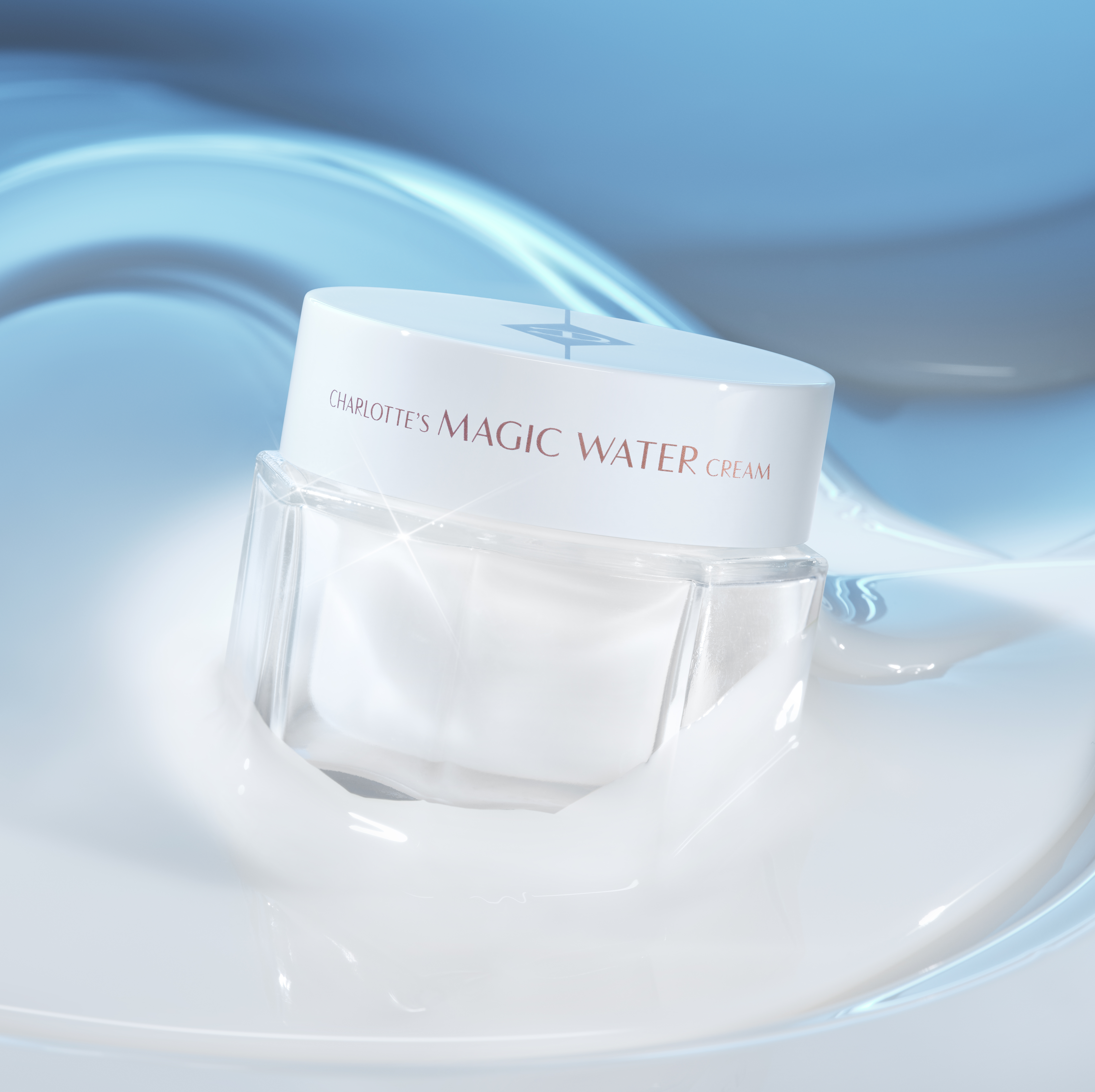
Item 1 of 37
Item 2 of 37
Item 3 of 37
Item 4 of 37
Item 5 of 37
Item 6 of 37
Item 7 of 37
Item 8 of 37
Item 9 of 37

NT$4,550.00
Item 10 of 37
Item 11 of 37

NT$1,850.00
Item 12 of 37
Item 13 of 37
Item 14 of 37
Item 15 of 37
Item 16 of 37

NT$4,650.00NT$4,185.00
Item 17 of 37
Item 18 of 37
Item 19 of 37

NT$8,950.00
Item 20 of 37
Item 21 of 37
Item 22 of 37
Item 23 of 37
Item 24 of 37

NT$2,050.00
Item 25 of 37
Item 26 of 37
Item 27 of 37
Item 28 of 37

NT$2,150.00
Item 29 of 37
Item 30 of 37
Item 31 of 37
Item 32 of 37
Item 33 of 37
Item 34 of 37
Item 35 of 37
Item 36 of 37
Item 37 of 37

NT$2,250.00
Dehydration is the loss or lack of water in the skin. It can be caused by insufficient water intake, or a loss of water in your skin’s moisture barrier due to factors such as cold and dry air or harsh, direct sunlight. Our bodies are largely made up of water, and our water levels are always fluctuating; when less fluid is absorbed into the body than is being lost, dehydration occurs. Dehydration can be mild, moderate, or severe, and when your skin is dehydrated, it may show the below signs of dehydration that signal you need to hydrate.
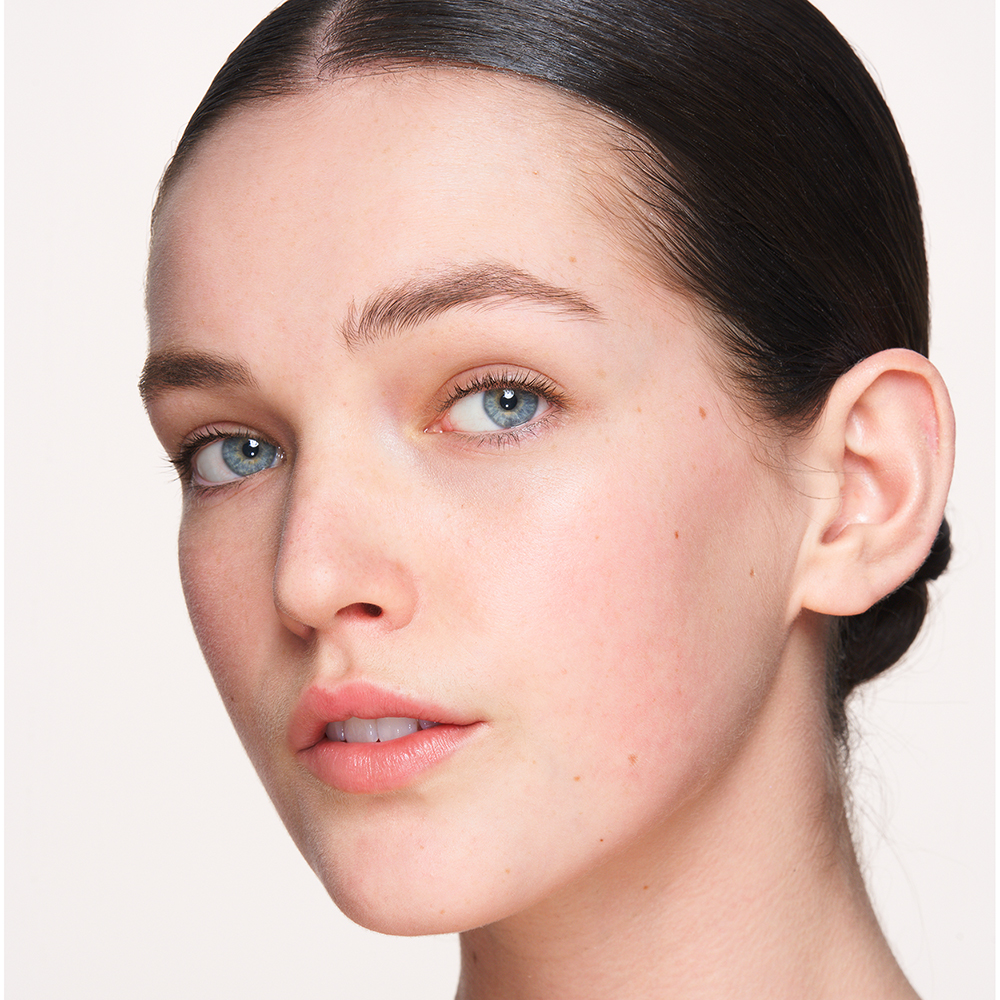
When skin is dehydrated, it can appear tired and dull. Losing moisture from your skin can result in the complexion having a greyish tone that looks flat and appears to have lost its natural lustre. The dull look that dehydration can give the skin also dims its usual radiance, resulting in a complexion that looks tired and in need of a boost.
Due to a lack of moisture, dehydrated skin often has a rough and scaly appearance. When the skin experiences water loss, it loses its natural softness and feels rough to the touch. Rather than flaking like dry skin, dehydrated skin can have a bumpy, raised texture that feels harder than normal.
Skin feels plump and healthy when it is hydrated, so when skin dehydration sets in, it can begin to feel less elastic which can lead to tightness and tenderness. Persistent tightness of the skin can cause discomfort and makes the face feel sensitive to the touch.
Thanks to the dull look of dehydrated skin, dark circles can appear more prominent when skin is dehydrated. Darkness around the eye area can give the eyes a sunken appearance, accentuating the look of dark circles and under-eye bags. Dehydration can also cause the delicate skin around the eyes to look crepey and puffy.
As skin becomes dehydrated, fine lines known as dehydration lines can appear. Dehydration lines look similar to wrinkles in the sense that they are visible lines on the face; however, they are caused by a lack of moisture. They are a network of tiny fine lines that can appear all over the face when skin becomes dehydrated but are typically found around the eyes and on the forehead.
Click here to discover the key differences between wrinkles and dehydration lines
Dehydrated skin can be extremely sensitive and is prone to itchiness and irritation. Skin becomes dehydrated due to the moisture barrier being insufficiently balanced, which can also lead to difficulties in protecting the skin from external stressors and leaving it prone to redness, inflammation, and general irritation.
When water levels are low, this can affect circulation and cause blood flow to slow down. Skin blanching is a useful test to check how hydrated your skin is; lightly pressing or pinching on your cheeks will cause its pigmentation to lighten for a moment – if the skin takes a long time to return to its normal tone, this indicates that skin is dehydrated and blood flow is slower than usual.
Finally, having dry eyes, dry lips or a dry mouth are all tell-tale signs that your skin is dehydrated. If eyes feel sensitive and irritable; lips feel chapped and are experiencing cracking; or the inside of your mouth feels dry and is not producing enough saliva, it’s likely that you need to hydrate by drinking plenty of water.
Darlings, how hydrated is your skin? With my NEW! skincare analysis tool, you can analyse your skin in real time to discover your hydration levels. This exciting innovation uses AI beauty tech and augmented reality to detect dehydration in your skin during live camera mode. Once your hydration levels have been assessed, my tool will recommend the perfect immediate skin revival routine for your skin’s needs.
Worried about dehydration, darlings? Discover my NEW! dehydration detector for an expert analysis of your skin’s hydration levels.
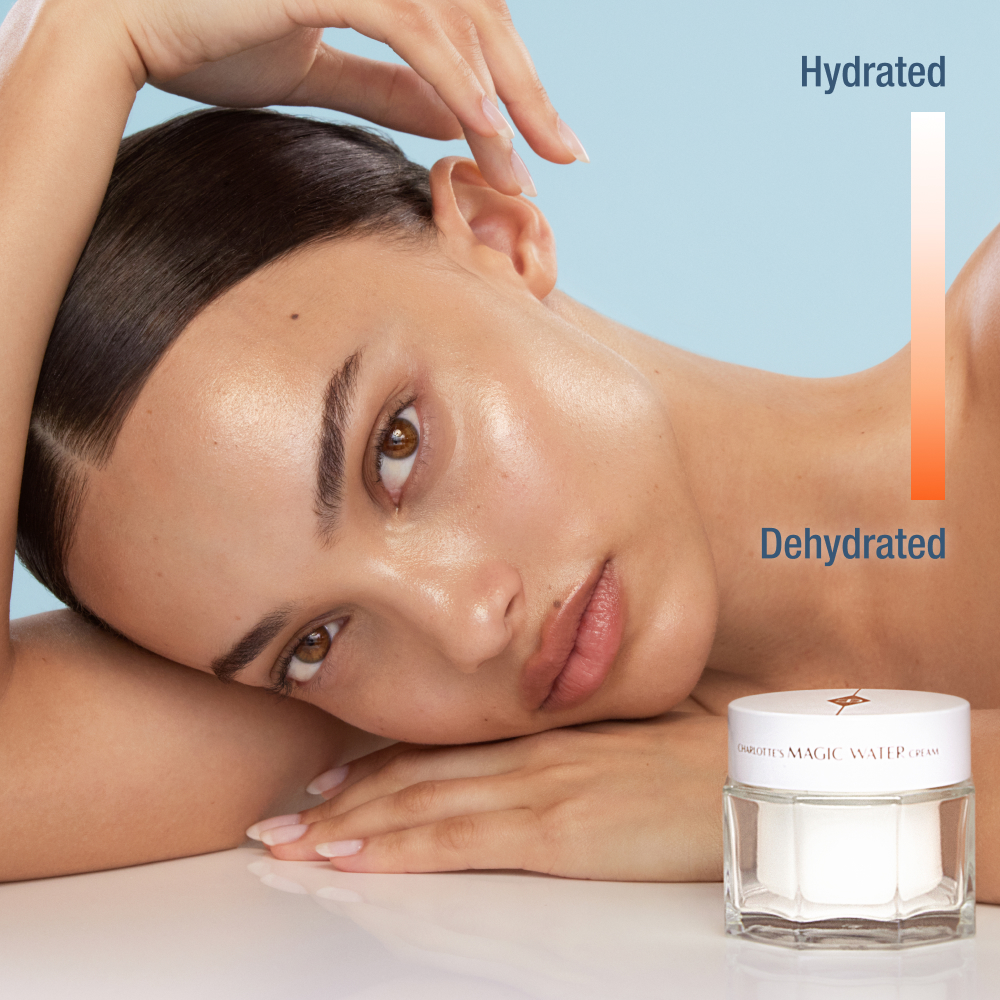
Skin becomes dehydrated due to water loss and a lack of fluid intake. Our biggest source of water intake is through drinking, and so it’s extremely important to drink water in order to keep your skin healthily hydrated. Not drinking enough water will lead to skin dehydration; it’s recommended that we drink between 1.5-2L of water each day in order to keep our water levels optimised. Drink enough water, darlings, and your skin will be far less prone to becoming dehydrated.
Exposure to strong UV rays is one of the quickest ways that our skin can become dehydrated. Whether you are spending a day at the beach; are out exploring nature; or are experiencing hot weather while going about your day, direct sunlight can deplete the moisture in your skin. To help prevent dehydration in warm weather, I recommend applying a hydrating, high-factor sunscreen like my Invisible UV Flawless Poreless Primer with SPF50; wearing an oversized hat or carrying a parasol that will provide some respite from the sun; applying a face mist to add moisture back into the skin; and spending time in the shade whenever possible.
While sunlight can cause dehydration, cold weather conditions can be extremely dehydrating for your skin as well. When the air is warm and humid it contains more moisture, whereas the opposite is true with cold weather. During winter months and cold spells, the air possesses less moisture for the skin to absorb which can lead to dehydration. Cold temperatures combined with harsh winds are rough on the skin; I recommend applying rich, hydrating skincare products that nourish the skin throughout the day before heading out into the cold, as well as drinking lots of water to stay hydrated.
Just like cold weather, air conditioning can cause the skin to become dehydrated. Whether you’re at home or in the office, sitting in an environment where air conditioning is sapping the moisture from the air can result in skin losing its moisture. To avoid skin becoming dehydrated due to air conditioning, I suggest that you don’t sit directly underneath any vents; keep it on a mild setting; and use it in conjunction with a humidifier to add moisture back into the air.
Consuming alcohol or tobacco can lead to dehydration in your skin. Alcohol and nicotine are both diuretics, leading to using the bathroom more often and causing you to lose more fluid. If this fluid isn’t replenished by drinking water, your skin can easily become dehydrated. Drinking alcohol responsibly and drinking water are the key to staying hydrated.
Darlings, when we feel stressed, fatigued, or generally exhausted, our bodies can become run down and more prone to dehydration. Stress can cause us to have an elevated heart rate and breathe heavier which can lead to a greater loss of fluids than usual and causing the skin to become dehydrated.
Item 1 of 41
Item 2 of 41
Item 3 of 41
Item 4 of 41
Item 5 of 41
Item 6 of 41
Item 7 of 41
Item 8 of 41
Item 9 of 41

NT$10,650.00
Item 10 of 41
Item 11 of 41
Item 12 of 41
Item 13 of 41
Item 14 of 41
Item 15 of 41
Item 16 of 41
Item 17 of 41
Item 18 of 41
Item 19 of 41
Item 20 of 41
Item 21 of 41
Item 22 of 41

NT$5,250.00NT$4,725.00
Item 23 of 41
Item 24 of 41
Item 25 of 41
Item 26 of 41
Item 27 of 41

NT$4,650.00NT$4,185.00
Item 28 of 41
Item 29 of 41
Item 30 of 41
Item 31 of 41
Item 32 of 41
Item 33 of 41
Item 34 of 41

NT$2,750.00
Item 35 of 41
Item 36 of 41
Item 37 of 41
Item 38 of 41
Item 39 of 41
Item 40 of 41
Item 41 of 41
While whole-body dehydration is unhealthy and can pose serious health risks when left untreated, the effects of dehydration on the skin are only temporary. Staying hydrated is the key to keeping the signs and symptoms of dehydration at bay. Once dehydrated skin has been rehydrated, the above signs of dehydration should begin to subside without long-term effects.
When skin becomes dehydrated, aside from maintaining a good water intake, the best way to rehydrate your skin is to use deeply hydrating skincare products enriched with supercharged skincare ingredients that flood the skin with moisture and help to revive the look of the complexion.
In my dehydrated skin tool kit, I’d choose Charlotte’s Magic Hydrator Mist to give the face an oxygenating moisture boost with Hyaluronic Mesh Technology; Glow Toner with niacinamide to help strengthen the skin barrier; and Charlotte’s Magic Serum Crystal Elixir to deliver healthy hydration in the form of powerhouse humectant polyglutamic acid that’s 4x as hydrating as hyaluronic acid.
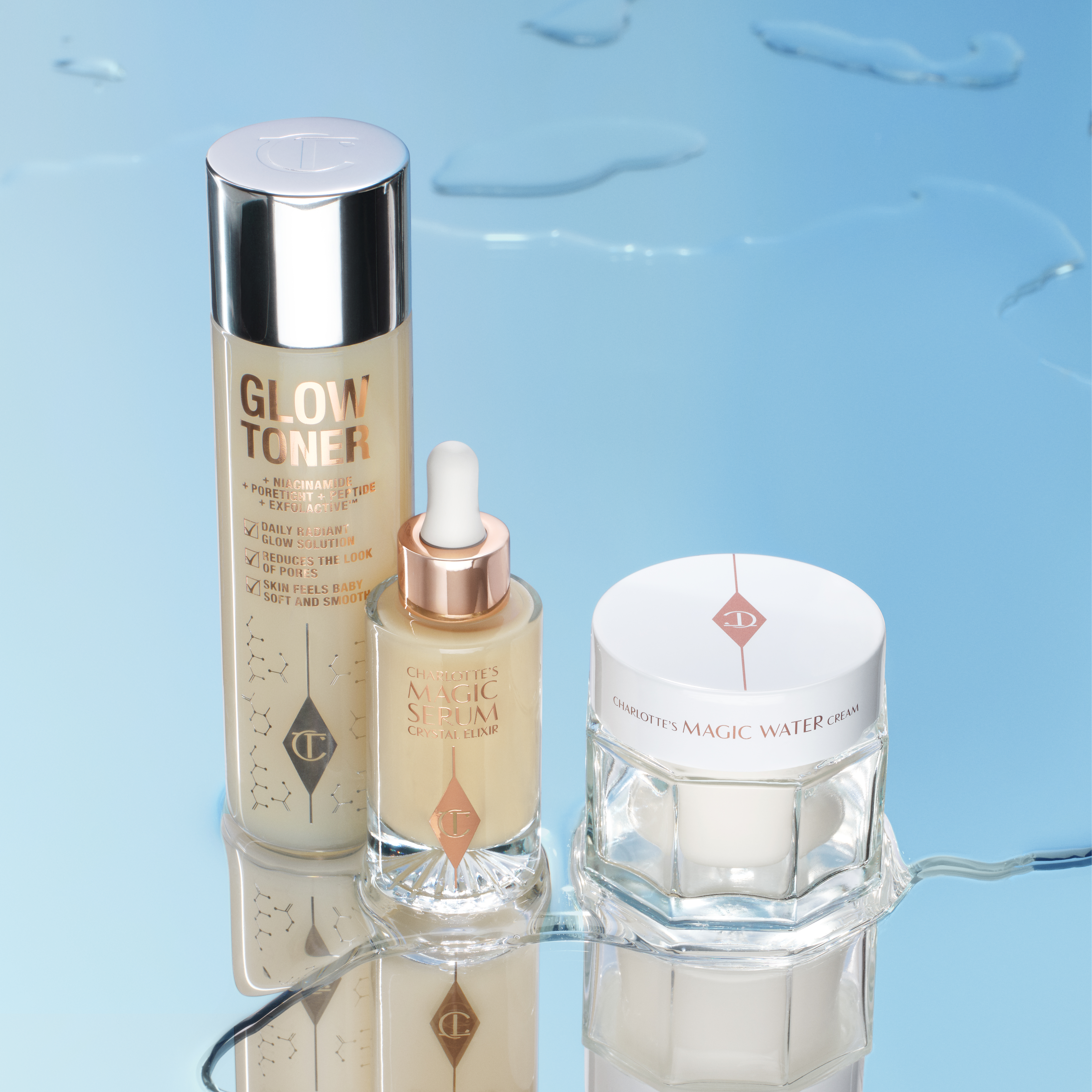
My secret to drenching and reviving dehydrated skin is NEW! Charlotte’s Magic Water Cream. Designed specifically for generation dehydration, this gel-cream moisturiser is formulated with Waterlocking Fusion Technology™ to flood the skin with 100-hour hydration** with every application. It drenches like a water cream and revives like a Magic Cream to immediately hydrate the skin and give it a dewy, fresh water glow. It’s a dream for dehydrated skin, delivering the drink of water your skin is thirsting for when experiencing dehydration.
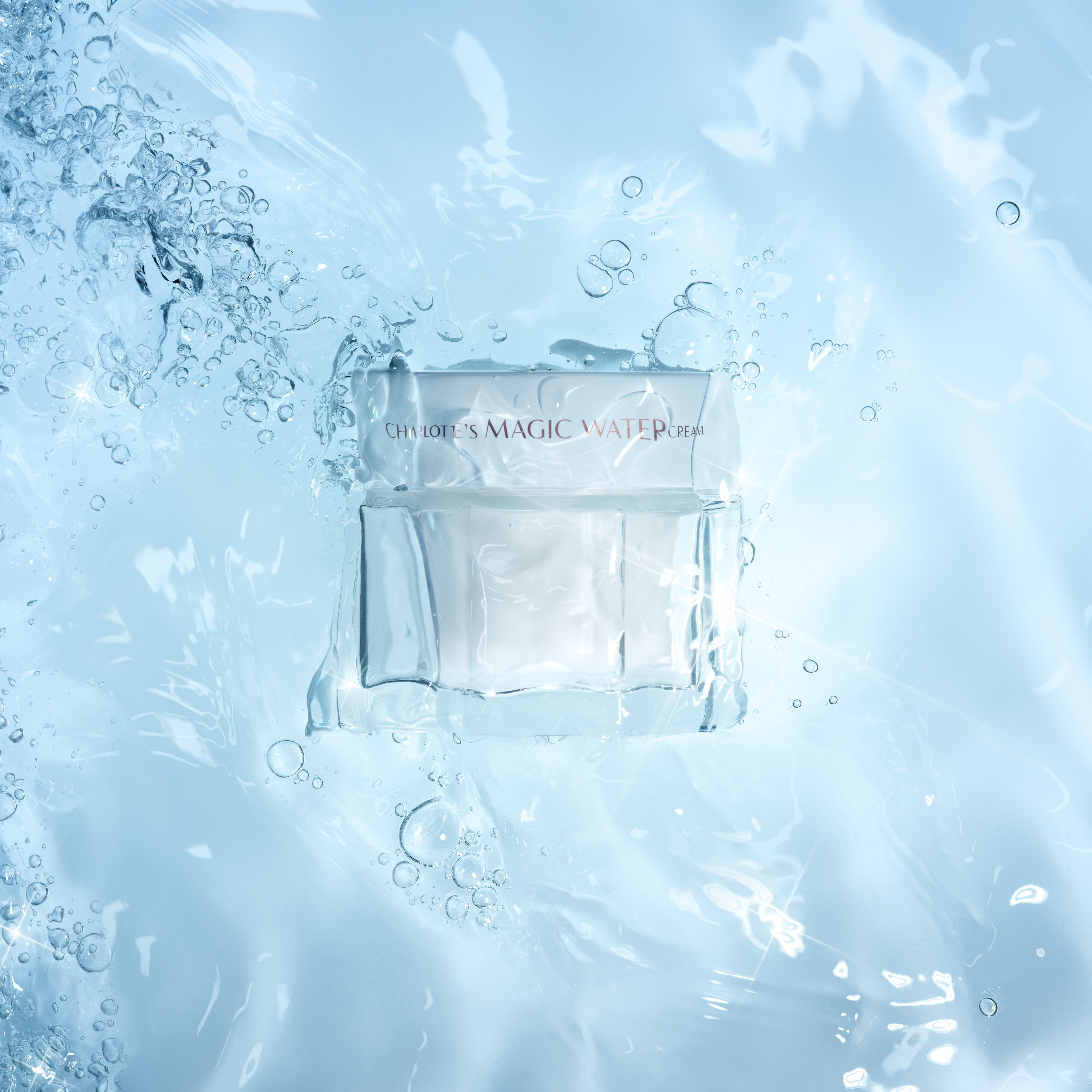
Item 1 of 41
Item 2 of 41
Item 3 of 41
Item 4 of 41
Item 5 of 41
Item 6 of 41
Item 7 of 41
Item 8 of 41
Item 9 of 41

NT$10,650.00
Item 10 of 41
Item 11 of 41
Item 12 of 41
Item 13 of 41
Item 14 of 41
Item 15 of 41
Item 16 of 41
Item 17 of 41
Item 18 of 41
Item 19 of 41
Item 20 of 41
Item 21 of 41
Item 22 of 41

NT$5,250.00NT$4,725.00
Item 23 of 41
Item 24 of 41
Item 25 of 41
Item 26 of 41
Item 27 of 41

NT$4,650.00NT$4,185.00
Item 28 of 41
Item 29 of 41
Item 30 of 41
Item 31 of 41
Item 32 of 41
Item 33 of 41
Item 34 of 41

NT$2,750.00
Item 35 of 41
Item 36 of 41
Item 37 of 41
Item 38 of 41
Item 39 of 41
Item 40 of 41
Item 41 of 41
Darlings, now that you’ve learnt the signs of dehydrated skin, you can be vigilant with your own skin and spot when you’re feeling dehydrated earlier! Use my beauty tech tool to learn more about dehydrated skin, then discover how to fix dehydrated skin with NEW! Charlotte’s Magic Water Cream to give your skin an immediate, skin-flooding wave of hydration!
*To learn more about how Charlotte Tilbury Beauty collects and processes your personal information, including the images you provide, please see our Biometric Processing Notice and Privacy Policy. Your results may be affected by the quality of the image i.e., lighting, or camera quality.
**TESTED ON 33 PEOPLE
With over 30 years experience, Charlotte Tilbury MBE is the world's number 1 makeup artist and British beauty entrepreneur. Charlotte established Charlotte Tilbury Beauty in 2013, which is now a record-breaking beauty brand that has won over 400 awards.